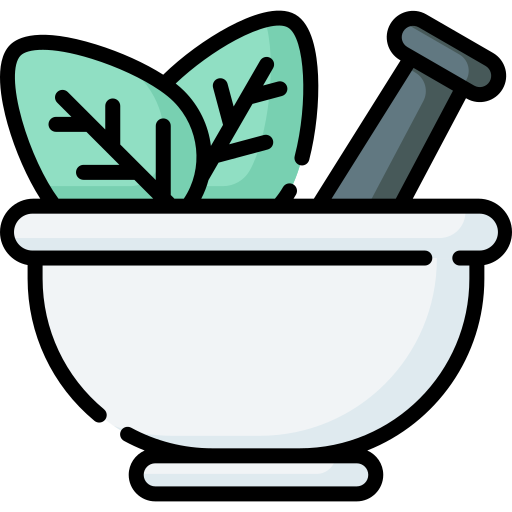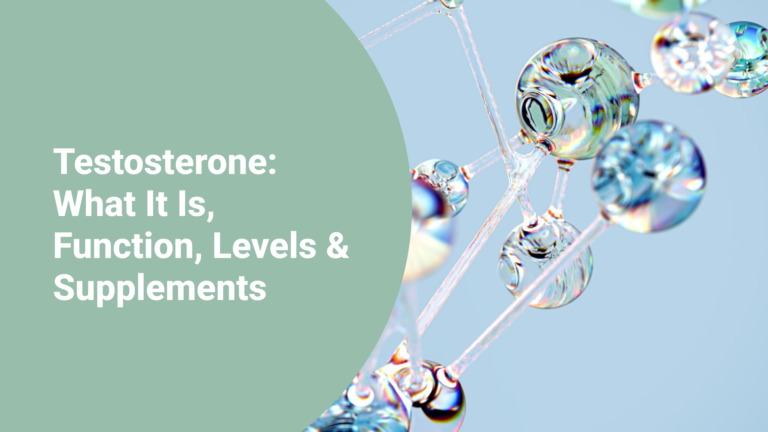What Are Adaptogens? Popular Herbs, Types, Benefits & Risks
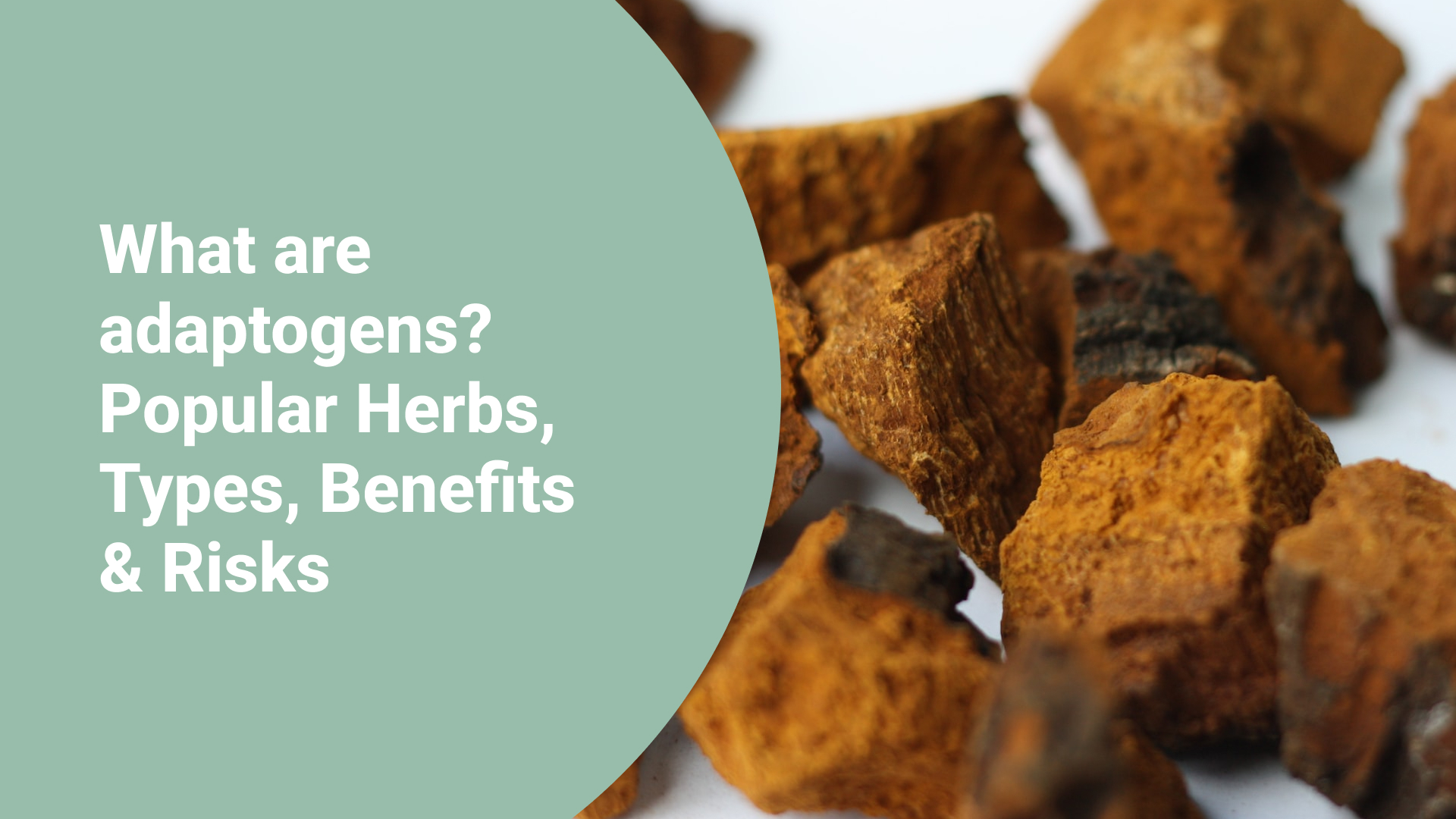
Ashwagandha Expert is a project that offers the most accurate information in an accessible, understandable and applicable way so that readers can make the best...Read more
✅ Evidence-Based
⚙️ Methodology
From the author:
In today’s approach to stress, anxiety and depression, adaptogenic herbs are at the center as effective alternatives. They are powerful alternatives to modern medical methods such as antidepressants, laboratory drugs, and professional help in reducing stress and improving mental health.
[READ: What Is Stress? Types, Symptoms, Causes, Treatment, Coping]
Nutritional supplements are gaining popularity, reflecting a shift towards natural treatments. Adaptogens, a hot topic in wellness, are being discussed widely, from podcasts to lifestyle blogs. The buzz is that these substances can decrease our body’s stress response and enhance our ability to cope with stressors.
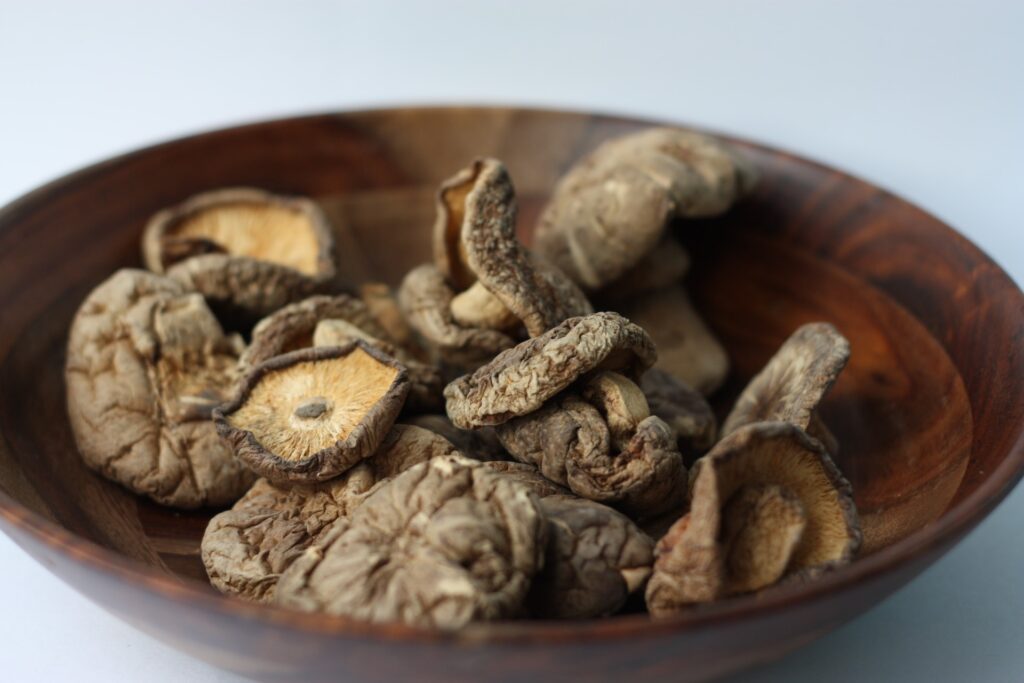
Let’s explore adaptogens and their impact in this article. We’ll discuss the most popular ones and examine how they contribute to reducing stress in our daily lives.
What are adaptogens?
Adaptogens, like Ashwagandha and Tongkat Ali, are natural plants known for boosting the body’s resilience to various stressors, be it physical, chemical, emotional, or biological. Trusted for centuries in Traditional Chinese and Indian Medicine, these herbs are gaining popularity due to the growing interest in natural treatments.
Adaptogens are believed to offer health benefits, potentially aiding in exercise recovery, stress reduction, hormone balance, and immune support.
Adaptogens are found in both natural and synthetic sources. The most popular natural sources of adaptogens are:
- Panax Ginseng
- Siberian Ginseng
- Rhodiola Rosea
- Withania Somnifera (Ashwagandha)
Synthetic adaptogens comprise:
- Synthetic Rhodiola Rosea
- Lab-created Ashwagandha
- Artificial Panax Ginseng
- Manufactured Holy Basil (Tulsi)
- Synthetic Eleuthero (Siberian Ginseng)
- Lab-derived Schisandra Berry
- Artificial Rhaponticum Carthamoides (Maral Root)
- Lab-engineered Astragalus Root
You can consume adaptogens in different forms—herbs, powders, teas, leaves, or roots—each with its specific usage methods and purposes. Whether you prefer the convenience of a tea or the versatility of a powder, adaptogens offer a variety of options to suit individual preferences.
For a herb to qualify as an adaptogen, it must meet specific requirements:
- Ensure non-toxicity in standard doses.
- Promote stress reduction.
- Support the body’s return to balance (homeostasis).
It is important to know that even when it meets all these features, an adaptogen cannot replace any medical drug. Adaptogens are short-term nutritional supplements.
Most popular adaptogenes
Dozens of adaptogenic herbs have been researched these days, but very few are preferred by people today.
1. Ashwagandha
Ashwagandha, also known as Indian Ginseng, stands out as a leading adaptogen in today’s health scene. Despite its potent aroma, this herb boasts numerous advantages. Primarily recognized for its stress-reducing and anxiety-alleviating properties, Ashwagandha seamlessly integrates into meals, enhancing flavors with various spices. While unsuitable for thyroid patients and expectant or nursing mothers, this herb offers scientifically validated benefits for the rest of the people
Benefits of Ashwagandha:
- Increases testosterone level
- Reduces stress and anxiety
- Improves depression
- Increases energy level
- Supports muscle repair
- Supports muscle growth
- Improves sleep quality
[READ: Scientifically Proven Health Benefits of Ashwagandha]
2. Panax Ginseng
Panax Ginseng (Asian Ginseng) is a widely-used herb in herbal medicine known for its positive effects on cholesterol, inflammation, and diabetes. While there is limited scientific research on Panax Ginseng, many individuals have reported its benefits for inflammatory conditions and diabetes. Studies indicate that Panax Ginseng contains ginsenosides, a chemical that influences insulin levels and contributes to lowering blood sugar. Additionally, research supports the idea that Panax Ginseng can alleviate fatigue.
Benefits of Panax Ginseng:
- Reduces inflammation
- Benefits brain function
- Improves erectile dysfunction
- Boosts immunity
- Protects against cancer
- Fights fatigue
- Lowers blood sugar
3. Maca Root
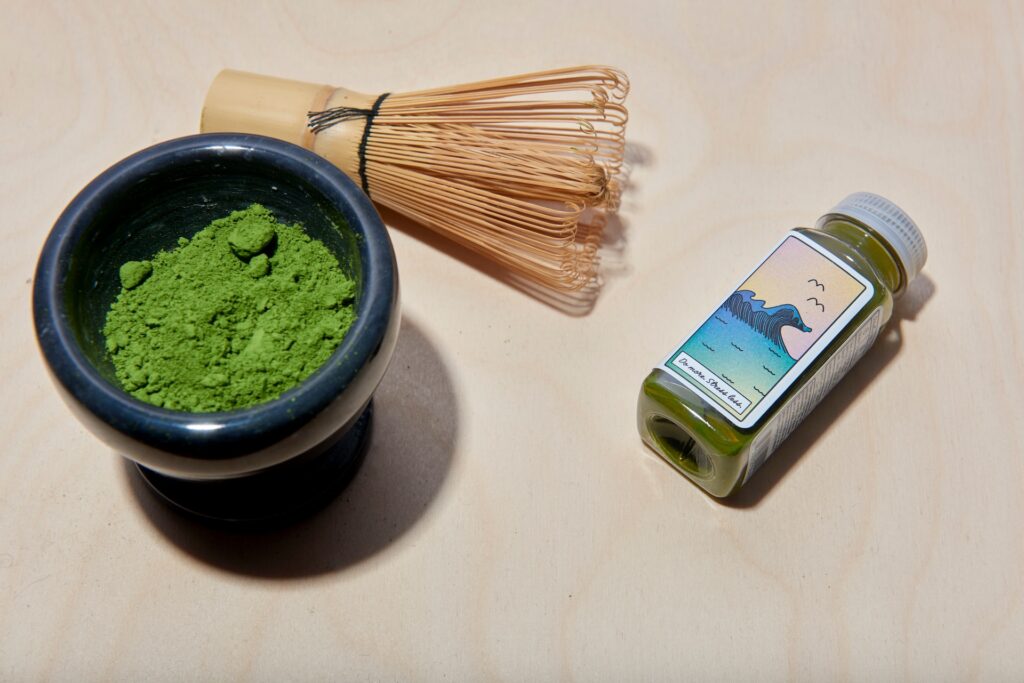
Maca root comes from the Peruvian Andes and works like calming herbs, helping with anxiety and the nervous system. Andean people have used it for over 2000 years as both food and medicine for respiratory issues and rheumatic diseases. While scientists are still learning about its benefits, many have seen it positively impact health for generations.
Benefits of Maca Root:
- Helps the body manage stress
- May help with depression
- May boost libido
- May support sperm function
- May help balance hormone levels
4. Reishi Mushroom
The Reishi mushroom stands out among various medicinal mushrooms, thanks to its potential anticancer and immune-boosting properties. This mushroom isn’t just limited to that – it’s also known for its liver-protecting benefits, antiviral capabilities, and positive impacts on cardiovascular health, rheumatoid arthritis, chronic fatigue syndrome, and diabetes. In China, Reishi has been a trusted supplement alongside conventional cancer treatments for over three decades, with its compatibility with chemotherapy thoroughly validated.
Benefits of Reishi mushroom:
- Boost the immune system
- Anti-cancer properties
- Could reduce fatigue and depression
- Balances blood sugar level
- It is good for high cholesterol
- Improves cardiovascular disease
- Building strength and stamina
- Improves blood pressure
5. Rhodiola (Rhodiola rosea)
Rhodiola, also known as golden root, rose root, or arctic root, is a natural remedy that helps reduce fatigue, anxiety, and depression. Its healing properties come from the plant’s root. Studies show that Rhodiola can boost performance in challenging situations, like at work or during physical activities. It’s especially good for athletic performance and strength. Though research on Rhodiola is limited, lab studies suggest that it improves mood by stimulating key receptors in the brain that regulate emotions, including norepinephrine, serotonin, dopamine, and acetylcholine.
Benefits of Rhodiola:
- May help decrease stress
- May help with fatigue
- Could help reduce symptoms of depression
- May improve brain function
- May improve exercise performance
How do they work?
Adaptogens help manage how our body handles stress through the HPA axis and SAM system.
The HPA axis links the brain’s hypothalamus, pituitary gland, and adrenal glands, playing a role in controlling stress responses.
SAM, part of the autonomic nervous system, readies the body for the fight-or-flight reaction to stress. Together, they form the core of our stress response.
SAM involves the sympathetic nervous system and adrenal medulla. While the precise way adaptogens function isn’t entirely clear, they seem to influence stress response systems, including the adrenal glands and HPA axis.
Adaptogens potentially regulate the release of stress hormones like adrenaline from the adrenal medulla. They may prevent an excessive or prolonged stress response by promoting balance in the endocrine system.
By impacting the release of corticosteroids, such as cortisol, from the adrenal cortex, adaptogens contribute to a more balanced stress response.
What are the benefits of adaptogens?
Adaptogens, utilized in Traditional Chinese Medicine and Ayurveda, have a longstanding history. Now, these plants are gaining popularity in the Western world.
[READ: What is Ayurveda? Principles, Practices Benefits and Risks]
These herbs aim to maintain balance and alleviate stress in the body. Many plants share adaptogenic qualities, delivering a calming, anti-inflammatory, and antioxidant impact.
Although there’s limited scientific research, recent studies suggest various benefits of adaptogens.
People use adaptogens to handle stress, boost energy, strengthen the immune system, and improve overall vitality. They help the body adapt to stress and reduce its negative effects.
Here are some scientifically proven benefits of adaptogens.
Reduce stress and anxiety
Adaptogens effectively lower cortisol, the stress hormone, reducing stress, anxiety, and preventing depression.
Among these adaptogens, Ashwagandha stands out for its scientifically proven ability to decrease stress by regulating cortisol levels and enhancing mental health. Notably, it can reverse changes in brain structure caused by chronic stress.
Research underscores the benefits of Ashwagandha for conditions such as post-traumatic stress disorder (PTSD) and depression.
Tulsi, also known as “holy basil“ is another adaptogen that helps lower stress and prevent anxiety. Packed with essential nutrients like vitamins A and C, calcium, iron, and zinc, Tulsi is beneficial for memory and brain health. Research highlights Tulsi’s positive impact on memory improvement.
Studies show that Reishi mushrooms, like other adaptogens, aid in quicker and more extended sleep by positively influencing the GABA pathway.
[READ: GABA vs Ashwagandha: Differences, Dosages, Purposes & Risks]
Improves sleep
Adaptogens play a crucial role in promoting better sleep. By regulating cortisol levels, they help maintain a healthy sleep cycle and effectively address insomnia triggered by stress or physical factors.
Research indicates that adaptogens contribute to enhanced sleep quality by calming the nervous system and reducing cortisol levels, particularly in the evening. A recent eight-week study involving 100 participants demonstrated that the use of holy basil extract led to noticeable improvements in subjective measures of sleep quality.
In a separate study, 29 individuals grappling with insomnia were administered 300 mg of Ashwagandha twice daily. The results revealed significantly improved sleep performance among those who took Ashwagandha compared to the placebo group.
Examining the impact on older adults, a study involving 50 participants aged 65 to 80 showed promising outcomes. Daily intake of 600 mg of ashwagandha root for 12 weeks markedly enhanced sleep quality and mental alertness upon waking, surpassing the results of a placebo treatment.
Studies indicate that Curcumin, the active compound responsible for turmeric’s color, has a positive impact on promoting quality sleep. Functioning as a natural antioxidant and anti-inflammatory, Curcumin contributes to improving your ability to fall asleep.
[READ: Can I Take Curcumin With Ashwagandha?]
Reduce inflammation and pain
Inflammation can lead to various health issues, with stress being a major contributor. Adaptogens, like holy basil and ashwagandha, serve as potent anti-inflammatories. They aid in alleviating pain linked to conditions such as osteoarthritis, rheumatoid arthritis, and fibromyalgia.
Research indicates that holy basil may improve lung function and ease asthma symptoms, hinting at its potential to reduce inflammation in the airways. This suggests a positive impact on respiratory health.
Short-term study on holy bacillus demonstrated potential effects on the immune system, particularly against viral infections.
An animal study reveals that Ashwagandha WA has the potential to lower inflammatory proteins like interleukin-10 (IL-10). This suggests that ashwagandha may help reduce inflammation in humans, indicating a positive impact on inflammatory markers.
Astragalus, a well-known adaptogen, contains active compounds that can boost the immune system and lower inflammation.
Improves metabolic conditions
Adaptogens, like holy basil, can positively impact metabolic conditions. Research indicates that holy basil may enhance blood sugar in diabetes and address cholesterol levels in hyperlipidemia, along with improving blood pressure and body mass index in hypertension.
Similarly, Ashwagandha demonstrates various beneficial properties. Studies reveal its hypotensive, anti-obesity, anti-diabetic, and anti-hyperlipidemic effects, influencing multiple molecular and cellular pathways.
Rhodiola, a well-known adaptogen, positively influences the body’s metabolism. A 2015 study on human visceral fat cells supported earlier findings, indicating that rhodiola extracts enhance glucose and lipid metabolism.
A subsequent 2022 study reinforced these benefits, suggesting that Rhodiola could potentially be employed in the future to address fat accumulation in fatty liver disease.
Reduces fatigue
Certain adaptogens have been proven to effectively reduce fatigue, boost aerobic capacity, enhance exercise performance, and improve cardiorespiratory function.
Adaptogens known for reducing fatigue include:
Author’s note: Many people combine adaptogens with other nutritional supplements to enhance their effects on fatigue.
Improves sperm health and testosterone levels
Powerful adaptogens like Tongkat Ali, Ashwagandha, Nettle Root, Maca Root, and Yohimbe Bark can enhance sperm health, boost performance in bed, and elevate testosterone levels.
[READ: Tongkat Ali vs Ashwagandha: Differences, Purposes and Risks]
Adaptogens work in two ways to improve testosterone. Firstly, their potent antioxidant effects safeguard the testicles, the site of testosterone production, from oxidative damage. Secondly, adaptogens like Ashwagandha and Tongkat Ali stimulate the production of luteinizing hormone, a key player in supporting the reproductive system. In men, this hormone catalyzes testosterone production.
In a 2010 study, 150 men (75 infertile, 75 healthy) took 5g of ashwagandha root powder daily. After 3 months, their testosterone, luteinizing hormone, follicle-stimulating hormone, and prolactin levels went up. Additionally, sperm count and motility increased.
[READ: Ashwagandha for Beginners: Usage, Dosage and Side Effects]
In 2009, a study checked 60 infertile men. They got split into three groups: one stressed, one smoked, and one had unknown fertility issues. All groups took 5 grams of ashwagandha daily. After 3 months, everyone, especially the stressed guys, saw better testosterone and sperm. Surprisingly, 8 out of the 60 men made their partners pregnant by the end of the study.
In a study lasting 8 weeks in 2022, men were given 300 mg of ashwagandha twice a day. Those who took ashwagandha showed higher testosterone levels and better sexual function compared to those who received a placebo.
In 2022, a meta-analysis in Medicina found that men using Tongkat Ali experienced enhanced total testosterone levels, positively addressing concerns like erectile dysfunction and infertility. The analysis demonstrated Tongkat Ali’s favorable effects on athletic performance, leading to increased muscle mass and reduced body fat.
A recent study spanning 1 month and involving 76 older men with low testosterone revealed that taking a daily dose of 200 mg tongkat ali extract led to a significant rise in hormone levels, bringing them back to normal in more than 90% of the participants.
A study with 108 men (ages 30–55) showed that taking 300 mg of tongkat ali extract daily increased sperm volume by 18% and motility by 44% over 12 weeks.
They are anti-cancer
Adaptogens have anti-cancer properties. They do not fully cure or stop cancer, but they exhibit anti-cancer properties in patients without cancer.
Discovered through microarray analysis, ashwagandha exhibits anti-inflammatory effects by suppressing proinflammatory genes in prostate cancer cells. This potential inhibition of tumor growth and stimulation of cytotoxic T lymphocyte production are positive outcomes.
In vitro studies demonstrate the cytotoxic properties of ashwagandha root extracts against various cancer cell lines, including lung, colon, CNS, and breast cancers.
Withaferin A, a compound found in ashwagandha, induces apoptosis in leukemia cells by generating reactive oxygen species (ROS) and disrupting mitochondrial function. In breast cancer cells (both estrogen receptor-positive and negative), Withaferin A triggers apoptosis, resulting in a reduction in tumor size.
Another beneficial compound in ashwagandha, Withanone, contributes to cancer cell apoptosis by mediating p53 and exerts anticancer activity by binding to the TPX2-Aurora A Complex.
A medical study reveals that Tongkat Ali possesses 16 compounds in its roots, trunk, bark, and leaves, displaying anti-proliferative and anticancer properties.
In a medical study, Eurycomanone, a significant element in Eurycoma longifolia (Tongkat Ali), demonstrates potent anticancer effects on lung carcinoma and breast cancer, with moderate activity against stomach and intestinal carcinomas.
Other benefits
Adaptogens offer various benefits, like boosting energy, enhancing mental well-being, and shielding against oxidative harm. They can also aid in muscle growth and recovery. However, it’s important to know that not all adaptogens produce identical effects, and some work best when combined with other supplements.
What about side effects?
Nutritional supplements, like medical drugs, can have side effects.
Limited scientific research on adaptogenic drugs has been conducted, mostly on animals. The effects on humans remain uncertain.
Studies indicate that adaptogens generally pose no serious side effects at normal doses.
There’s insufficient research on the long-term safety of specific adaptogens. Some believe using adaptogens for over 2 months may be unsafe. Notably, Ashwagandha may harm the liver, and Tongkat Ali may lead to hair loss with prolonged use.
Adaptogens may not be safe for pregnant or breastfeeding women, as indicated by various studies on their side effects.
Certain adaptogens, such as Panax ginseng, Rhodiola rosea, Ashwagandha, and Tongkat Ali, have undergone more comprehensive research.
Panax ginseng may cause:
- Insomnia
- Menstrual problems
- Breast pain
- Increased heart rate
- Blood pressure changes
- Headache
- Decreased appetite
- Digestive issues
Ashwagandha may cause:
- Drowsiness
- Upset stomach
- Diarrhea
- Vomiting
Rhodiola rosea may cause:
- Dizziness
- Dry mouth
- Excessive saliva
Tongkat Ali may cause:
- DNA damage
- Insomnia
- Irritability
- Restlessness
- Mercury poisoning
- Memory problems
- Mood changes
- Motor skill issues
Herbal supplements may impact how other supplements or medications work. Consult a healthcare professional or dietitian before trying adaptogens.
Moreover, note that the FDA does not regulate the safety or effectiveness of supplements, including adaptogens. Choose a reputable brand and seek third-party certifications such as NSF International, U.S., Pharmacopeia (USP), or ConsumerLab.com when selecting an adaptogen supplement.
Are adaptogens effective?
Yes, adaptogens have been integral to Traditional Indian Medicine (Ayurveda) and Traditional Chinese Medicine for centuries. Scientifically supported benefits include stress reduction, improved immune functions, increased energy levels, and heightened testosterone. However, it’s crucial to acknowledge the limited evidence on adaptogens’ effects in humans, as most studies have centered around animals.
How do you use adaptogens?
Adaptogens come in various forms, including supplements, toners, liquid extracts, teas, and powders. You can even incorporate some adaptogens into your meals or protein powders since they’re natural plants. Enjoy them in drinks like coffee, tea, or smoothies.
Dosages of adaptogens can differ, and there aren’t strict scientific guidelines. People typically begin with small doses and adjust based on the observed effects.
Before using adaptogens, consult your doctor. These aren’t medicines or permanent disease solutions. While these herbs can be as helpful as medicines, they can also pose risks if used improperly.
Ashwagandha Expert is a project that offers the most accurate information in an accessible, understandable and applicable way so that readers can make the best possible decisions about the Ashwagandha plant and its use.
More Posts